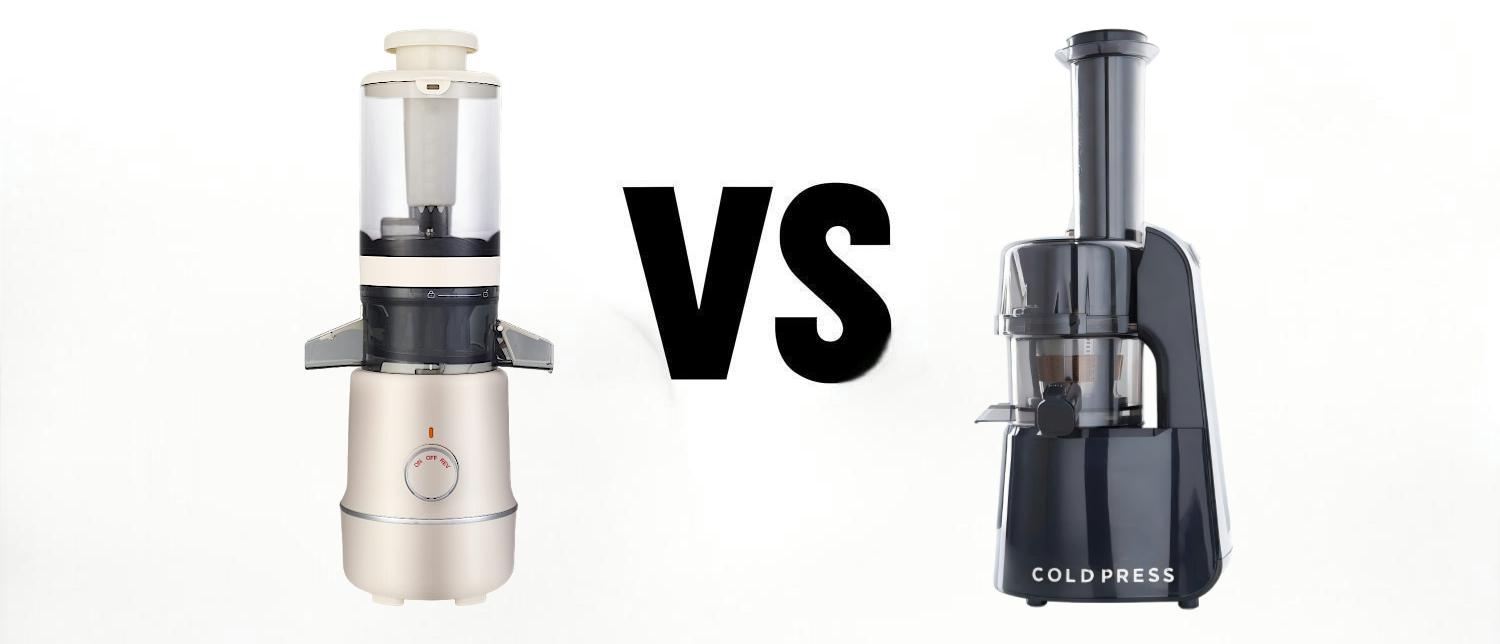紹介 スロージューサー vs Cold Press
In today’s health-conscious world, juicing has become a popular way to incorporate more fruits and vegetables into our diets. With so many options available, it can be difficult to determine which juicing method is best for you. In this article, we will compare slow juicer vs cold press juicers, examining their features, benefits, and drawbacks to help you make an informed decision.
The Basics of Slow Juicing
A slow juicer, also known as a masticating juicer, operates by slowly grinding and pressing fruits and vegetables to extract juice. This gentle method preserves more nutrients and enzymes compared to traditional juicers. Slow juicers are typically quieter and can handle a wide variety of produce, including leafy greens and hard fruits like apples and carrots.
コールドプレスジュースとは?
Cold press juicing utilizes a hydraulic press to extract juice from fruits and vegetables. By applying high pressure without generating heat, cold press juicers are able to preserve even more nutrients than slow juicers. Additionally, cold press juices have a longer shelf life due to reduced heat and oxygen exposure.
Comparing Nutrient Retention
Both slow juicer vs cold press juicers offer significant nutritional advantages. Consuming fresh juice can increase your intake of vitamins, minerals, and antioxidants. While both methods are beneficial, cold press juicers may be slightly better at preserving nutrients due to their lack of heat and oxygen exposure. Moreover, cold press juices often have a higher concentration of nutrients than those made with a slow juicer.
Price and Convenience
In terms of price, slow juicers are generally more affordable than cold press juicers. However, cold press juicers may offer greater convenience in terms of ease of use and cleaning. They typically have fewer parts and require less disassembly, making them easier to clean. Additionally, cold press juicers can produce juice more quickly, making them a better choice for those with limited time.
結論
So, which juicer is the best choice for you? If you are on a budget and need a juicer that can handle a variety of fruits and vegetables, a slow juicer may be the way to go. On the other hand, if you are willing to invest more money and prioritize the highest possible nutrient content and convenience, a cold press juicer may be the better option. Ultimately, the decision depends on your individual needs and preferences.
概要
This article compared slow juicers and cold press juicers. Slow juicers work by slowly grinding and pressing produce, are quieter, and can handle a wide range of fruits and vegetables. Cold press juicers use hydraulic pressure to extract juice without generating heat, preserving more nutrients and having a longer shelf life. Both offer nutritional benefits, but cold press juicers may be slightly better at nutrient retention. Slow juicers are more affordable, while cold press juicers offer more convenience in terms of ease of use and cleaning. The choice between the two depends on your budget, needs, and preferences.
FAQ About Slow Juicer vs Cold Press
1.Are slow juicer vs cold press juicers suitable for all types of fruits and vegetables?
Both slow juicer vs cold press juicers can handle a wide variety of fruits and vegetables. However, some hard or fibrous produce may require more effort with a slow juicer.
2.Do cold press juices really have a longer shelf life?
Yes, cold press juices have a longer shelf life due to the lack of heat and oxygen exposure during the juicing process.
3.Are cold press juicers more expensive than slow juicers?
Generally, cold press juicers are more expensive than slow juicers.
4.Which is easier to clean, a slow juicer or a cold press juicer?
Cold press juicers are often easier to clean as they have fewer parts and require less disassembly.
5.Which juicer is better for someone on a budget?
A slow juicer is a better choice for those on a budget as they are more affordable.

